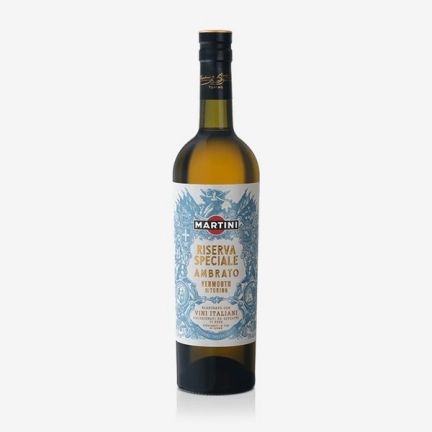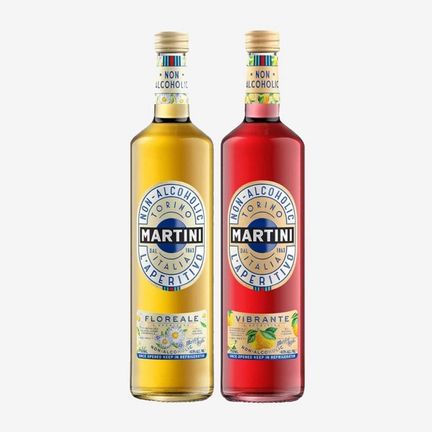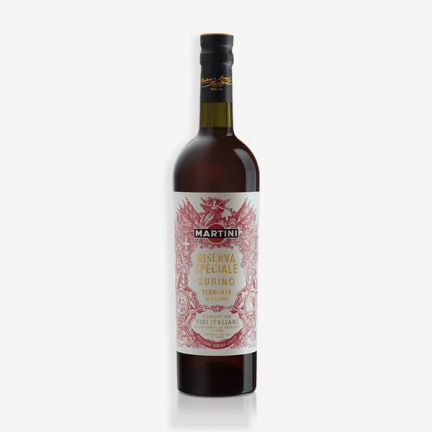
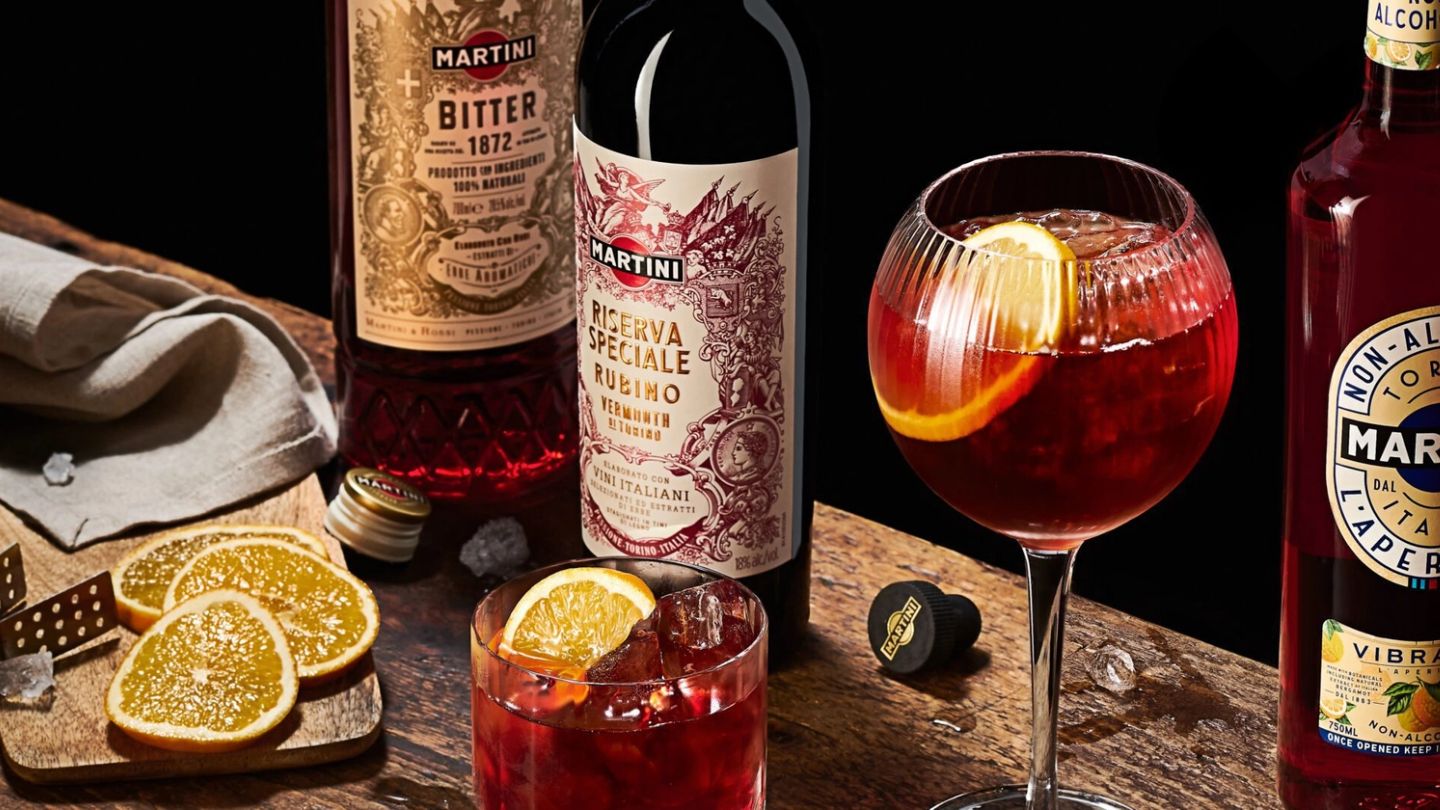
The case for vermouth
Why seven to nine just became the most important time of the day...
King Vittorio Emanuele II (or Vittorio Emanuele Maria Alberto Eugenio Ferdinando Tommaso di Savoia, if it’s all the same to you) will go down in history as the first ever King of a unified Italy (though we’d also like to note his Walrus-grade mustache and a particularly jaunty taste in spats.)
But by far his greatest achievement — and the reason we ought to honour him with a statue in every town square from Preston to Palermo — is something far more important than just the birth of a nation. It’s an asset considerably more liquid — a heritage over ice.
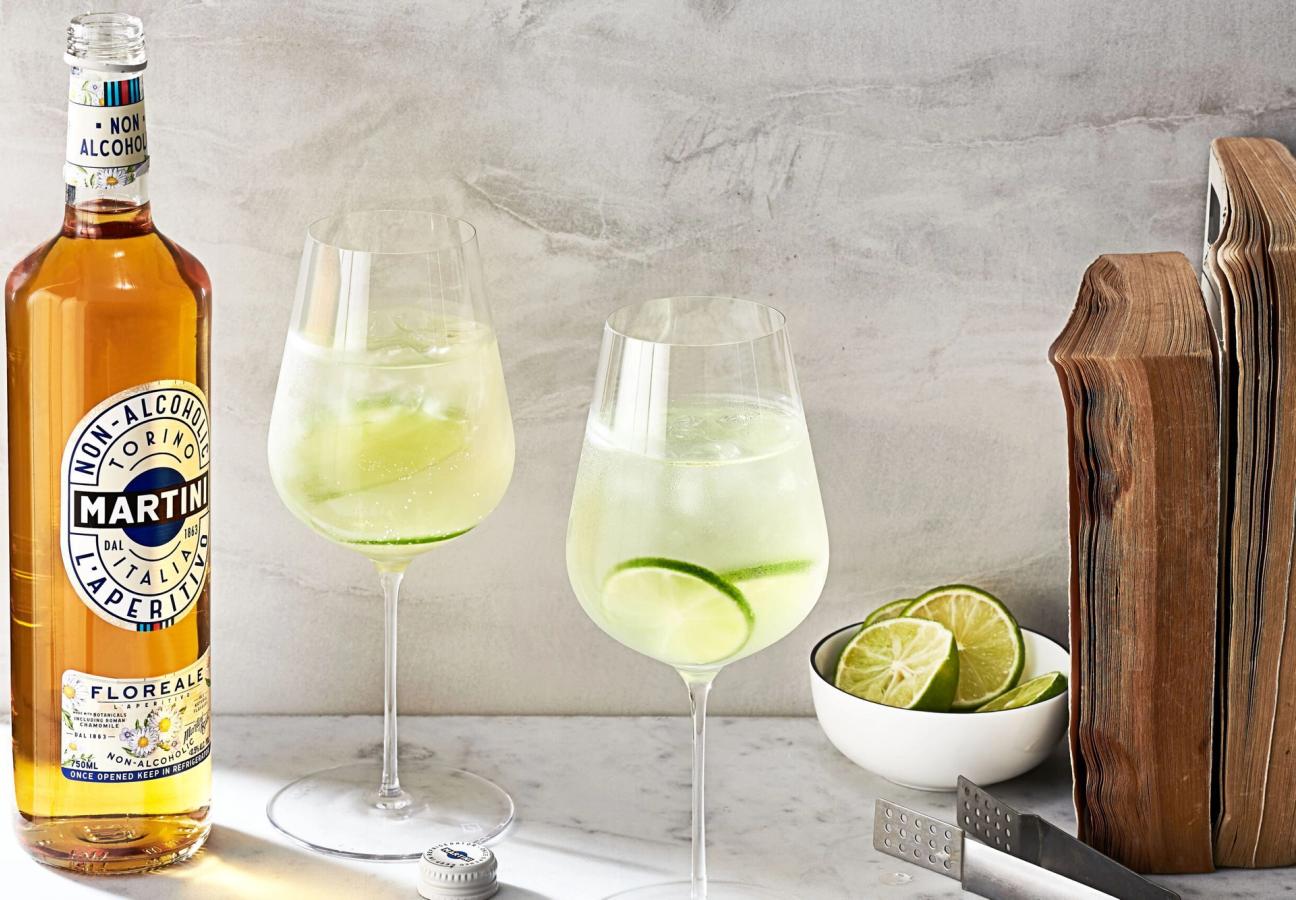
King Emanuele, as it turns out, is the great grandfather of vermouth: that tastebud-widening alchemy of fortified white wine and bitter herbs which forms the lively backdrop to so many good drinks and better evenings.
He didn’t invent it (far too busy having a crack at the Russians in the Crimean war for that.) But he did announce to his subjects that he was partial to a couple of glasses of the stuff just before dinner. And soon the word was out, the die was cast, the trend was set. Next time you sip a particularly fortifying negroni, you ought to raise a glass to dear Vito.
That legacy lives on today, in squares and streets and side alleys up and down the Italian peninsula. Over there, the act of ‘aperitivo’ is a lifestyle raised to an art form — like sprezzatura dressing or the morning coffee ritual. The phrase derives from the Latin for ‘to open‘ — and aperitivo is the moment in the evening (from seven to nine) when the strictures of the working day open out into the more relaxed pleasures of the evening: chiefly good conversation, good company and excellent food.
Well, we’re in need of that now more than ever. The darkness has set in, the lockdown looms over us, and the work-from-home revolution means the nine-to-five too easily melds into the five-to-nine.
That’s why we’d like to make the quiet case for a new appreciation of the art of aperitivo, and why we think that you should share it with those who might benefit (read: almost everyone). In the winter months, it was once traditional to send a bottle of warming whisky, say, to your loved ones; or to share some mulled wine in the longer, darker evenings. But that simply won’t cut it anymore. This year, we need something altogether more vital and stimulating — something with a little more spritz and tinkling ice; a little more laughter and intrigue.
Inspired by 150 years of vermouth-making and the traditional methods of the Piedmont region, the Martini Riserva Speciale Rubino is a deep, complex pour that the good king himself would recognise. It has all the characteristics of any great evening sharpener — a rich, cassis-like flavour flecked with notes of black pepper, gently bitter sandalwood and woody tannins — and encourages food, which is rarely a bad thing. It does its best work poured over ice and bolstered by tonic, where its savoury quinine notes come to the fore. The bottle is incredibly handsome, too — dispatch it to a friend with particularly good taste in upholstery.
In Italy, the act of ‘aperitivo’ is a lifestyle raised to an art form — like sprezzatura dressing or the morning coffee ritual...
Meanwhile, the Rubino’s brother, the Ambrato, is perhaps more playful still. A blend of rare botanicals (such as yellow chinchona bark), it is a heady, honeyed mix of fresh herbal notes and ripe orchard fruits, stiffened at the last by a characteristic wormwood finish. Again, the received wisdom is to drink it long and slow with tonic — but we found it was particularly effective in a negroni sbagliato, where the floral notes played beautifully with a slug of prosecco. This is one to share with housemates when things all get a little “next slide please.”
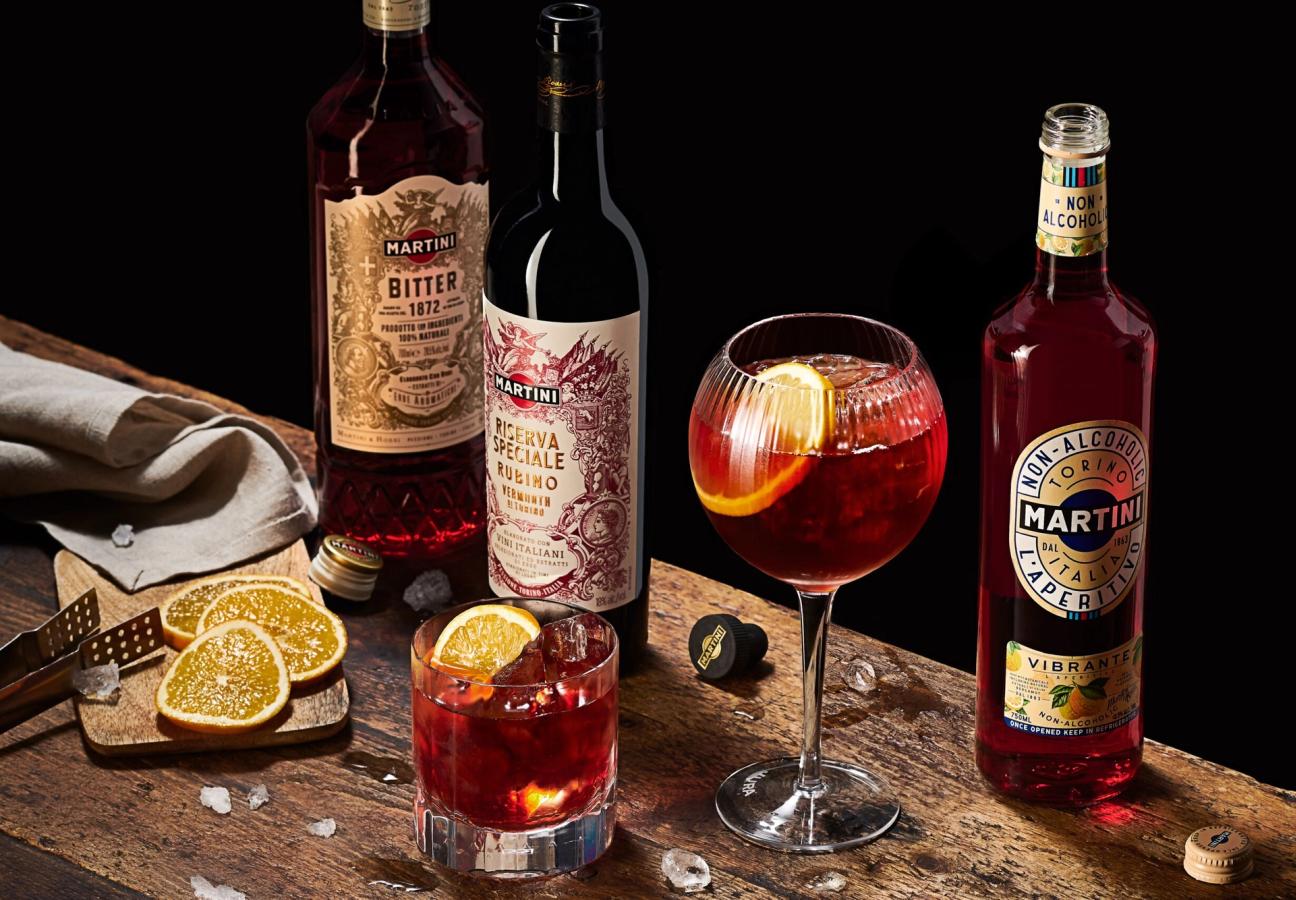
The shimmering red Vibrante, meanwhile — an innovative non-alcoholic aperitivo — is made from a complex blend of botanicals, and it swirls with candied orange notes and a deep, rich finish. Both siblings stand up very well to decent tonic, and are a refreshing, elegant long drink when stacked full of ice in a balloon glass. They are excellent fuel for a mid-week dinner party — send them as a handsome twinset to your brother (the one who can actually cook.)
A decent bitters is the backbone to any aperitivo hour — it’s that moreish, tongue-smacking savouriness that pairs so well with those ‘stuzzichini’ morsels. Martini’s Riserva Special Bitter is inspired by the original 1872 Martini Bitter recipe and rested in a Tino. It combines three rare botanicals — saffron, angostura and calumba — on a heady, sophisticated palette.
You don’t need to go much further than the negroni to see the Riserva Speciale Bitter at its best — it’s got the spice, the gentle warmth, the pungent, liquorice bitterness, and the final lick of orange to really make the cocktail sing. It is deep and potent but subtle and playful. Give it to your father this winter — on the strict condition that he shares it with you, and you alone.
Looking to perfect that negroni? Here are the best gins you’ve never heard of…
Become a Gentleman’s Journal member. Find out more here.

